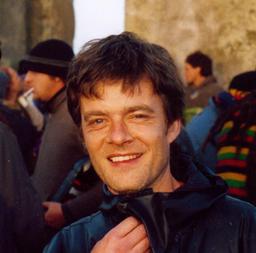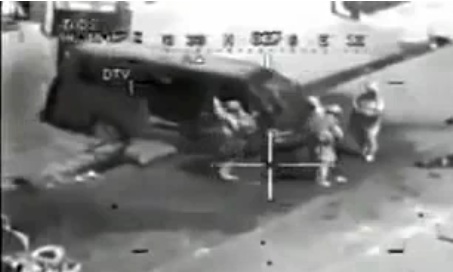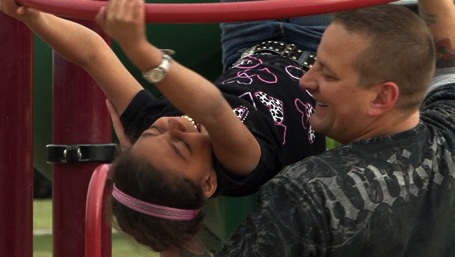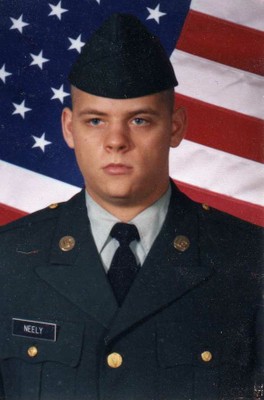 Andy Worthington is a journalist, blogger, and author of The Guantánamo Files: The Stories of the 774 Detainees in America’s Illegal Prison. He is also co-director of a new documentary film, “Outside the Law: Stories from Guantánamo”.
Andy Worthington is a journalist, blogger, and author of The Guantánamo Files: The Stories of the 774 Detainees in America’s Illegal Prison. He is also co-director of a new documentary film, “Outside the Law: Stories from Guantánamo”.
In 2009, Worthington revealed information about the demise of Ibn al-Shaykh al-Libi the former US 'ghost prisoner' whose alleged suicide death in a Libyan jail is still under suspicion.
Ibn al-Shaykh al-Libi's testimony, which was obtained under torture and coercion, and later recanted, was cited by the George W. Bush Administration in the months preceding the 2003 invasion of Iraq as evidence of a connection between Saddam Hussein and al-Qaeda.
The head of the Washington office of Human Rights Watch stated al-Libi was "Exhibit A" in hearings on the relationship between pre-Iraq War false intelligence and torture. Confirmation of al-Libi's location came two weeks prior to his death.
Most recently, Worthington partnered with WikiLeaks on its latest release of thousands of pages of documents regarding the cases of 758 out of 779 Guantanamo detainees dating between 2002 and 2008. The documents consist of memoranda from JTF-GTMO, the Joint Task Force at Guantánamo Bay, to US Southern Command in Miami, Florida.
You can find Mr. Worthington on his Web site or on twitter @GuantanamoAndy.
Transcript
I wanted to talk to you a little bit about a couple things that you had mentioned when you were talking with Amy Goodwin on Democracy Now. One of the things you talked about was that ‘guidelines’ needed to be set up for filtering or discriminating the content that was found in the documents. Could you tell me a little bit about what that would be like in terms of application?
Well, you know, to be honest...a certain amount of hard work is required and some of that has already been done… I am glad to know…by some of the journalists who’ve been writing about it already...who have worked out that a lot of this supposed ‘body of evidence’ consists of allegations that have been made by a small number of prisoners… who have made repeated allegations against large numbers of their fellow prisoners, which have been called into doubt.
Now, you know, the doubts about this information are not necessarily mentioned, in fact, they are rarely mentioned in these military documents.
Update: An edited version of the podcast is now posted along with a complete transcript of the interview with Ethan McCord.
 April 5th will mark one year since WikiLeaks first released the "Collateral Murder" video, which showed a 2007 Apache helicopter attack in Iraq. To mark the anniversary, the show's guest the show's guest was Ethan McCord, an Iraq War veteran and one of the US soldiers on the ground in Baghdad in 2007 who can be seen in the video helping to rescue children wounded in the attack.
April 5th will mark one year since WikiLeaks first released the "Collateral Murder" video, which showed a 2007 Apache helicopter attack in Iraq. To mark the anniversary, the show's guest the show's guest was Ethan McCord, an Iraq War veteran and one of the US soldiers on the ground in Baghdad in 2007 who can be seen in the video helping to rescue children wounded in the attack.
In the aftermath of the attack, McCord's superiors ordered him to stop saving the wounded. He was deeply bothered by the fact that he was the only one interested in saving lives.
McCord recently appeared in a Panorama documentary. He talked about the shooters in the video being protected and not charged with war crimes, highlighted how the US had covered up the truth of the attack prior to WikiLeaks’ release of the video and juxtaposed that dark reality with the fact that former Pfc. Bradley Manning, alleged to have leaked the video (along with other material) to WikiLeaks, is being held in solitary confinement and abused and humiliated in prison. And, McCord said after the attack he could no longer justify being a US soldier in Iraq.
 McCord has recently been going to schools to tell his story and talk to students about what it is really like to be in the military. He thinks he might have found his calling: talking to kids.
McCord has recently been going to schools to tell his story and talk to students about what it is really like to be in the military. He thinks he might have found his calling: talking to kids.
 This is our first interview in a series of interviews with former Guantanamo Bay detention camp guards and detainees.
This is our first interview in a series of interviews with former Guantanamo Bay detention camp guards and detainees.
Several current and former U.S. soldiers have expressed interest in speaking publicly about their experience at Guantanamo: including a CIA psychologist, interrogators, guards, and medical personnel. They are disgusted with what they witnessed or took part in at Guantanamo, but declined my request for an interview, because they fear opening themselves up to prosecution by the US government, which required them to sign a Non Disclosure Agreement .
I was also told that many are afraid of being prosecuted for war crimes, since low level soldiers are often the ones who shoulder the brunt of punishment and backlash; whereas higher ranking officials seem to escape scrutiny completely.
Brandon Neely, has been a vocal critic of both Guantanamo Bay, and the war in Iraq. And he speaks from experience, since he was both a guard at Guantanamo during the the first six months the camp was open, and served in Iraq during the US invasion. In the course of his advocacy, he has offered testimony to the Center for Human Rights in the Americas, and appeared in numerous articles and on television programs, including a BBC program that recounts how he contacted two of his former prisoners on Facebook to express remorse for what he did. You can also find him, where I did, on twitter, @BrandonTXNeely.
*Apologies for the first seconds of poor audio quality.
Listen to Part 1 of 8 here
Transcript
 This is our first interview in a series of interviews with former Guantanamo Bay detention camp guards and detainees.
This is our first interview in a series of interviews with former Guantanamo Bay detention camp guards and detainees.
Several current and former U.S. soldiers have expressed interest in speaking publicly about their experience at Guantanamo: including a CIA psychologist, interrogators, guards, and medical personnel. They are disgusted with what they witnessed or took part in at Guantanamo, but declined my request for an interview, because they fear opening themselves up to prosecution by the US government, which required them to sign a Non Disclosure Agreement .
I was also told that many are afraid of being prosecuted for war crimes, since low level soldiers are often the ones who shoulder the brunt of punishment and backlash; whereas higher ranking officials seem to escape scrutiny completely.
Brandon Neely, has been a vocal critic of both Guantanamo Bay, and the war in Iraq. And he speaks from experience, since he was both a guard at Guantanamo during the the first six months the camp was open, and served in Iraq during the US invasion. In the course of his advocacy, he has offered testimony to the Center for Human Rights in the Americas, and appeared in numerous articles and on television programs, including a BBC program that recounts how he contacted two of his former prisoners on Facebook to express remorse for what he did. You can also find him, where I did, on twitter, @BrandonTXNeely.
 This is our first interview in a series of interviews with former Guantanamo Bay detention camp guards and detainees.
This is our first interview in a series of interviews with former Guantanamo Bay detention camp guards and detainees.
Several current and former U.S. soldiers have expressed interest in speaking publicly about their experience at Guantanamo: including a CIA psychologist, interrogators, guards, and medical personnel. They are disgusted with what they witnessed or took part in at Guantanamo, but declined my request for an interview, because they fear opening themselves up to prosecution by the US government, which required them to sign a Non Disclosure Agreement .
I was also told that many are afraid of being prosecuted for war crimes, since low level soldiers are often the ones who shoulder the brunt of punishment and backlash; whereas higher ranking officials seem to escape scrutiny completely.
Brandon Neely, has been a vocal critic of both Guantanamo Bay, and the war in Iraq. And he speaks from experience, since he was both a guard at Guantanamo during the the first six months the camp was open, and served in Iraq during the US invasion. In the course of his advocacy, he has offered testimony to the Center for Human Rights in the Americas, and appeared in numerous articles and on television programs, including a BBC program that recounts how he contacted two of his former prisoners on Facebook to express remorse for what he did. You can also find him, where I did, on twitter, @BrandonTXNeely.
 This is our first interview in a series of interviews with former Guantanamo Bay detention camp guards and detainees.
This is our first interview in a series of interviews with former Guantanamo Bay detention camp guards and detainees.
Several current and former U.S. soldiers have expressed interest in speaking publicly about their experience at Guantanamo: including a CIA psychologist, interrogators, guards, and medical personnel. They are disgusted with what they witnessed or took part in at Guantanamo, but declined my request for an interview, because they fear opening themselves up to prosecution by the US government, which required them to sign a Non Disclosure Agreement .
I was also told that many are afraid of being prosecuted for war crimes, since low level soldiers are often the ones who shoulder the brunt of punishment and backlash; whereas higher ranking officials seem to escape scrutiny completely.
Brandon Neely, has been a vocal critic of both Guantanamo Bay, and the war in Iraq. And he speaks from experience, since he was both a guard at Guantanamo during the the first six months the camp was open, and served in Iraq during the US invasion. In the course of his advocacy, he has offered testimony to the Center for Human Rights in the Americas, and appeared in numerous articles and on television programs, including a BBC program that recounts how he contacted two of his former prisoners on Facebook to express remorse for what he did. You can also find him, where I did, on twitter, @BrandonTXNeely.
 This is our first interview in a series of interviews with former Guantanamo Bay detention camp guards and detainees.
This is our first interview in a series of interviews with former Guantanamo Bay detention camp guards and detainees.
Several current and former U.S. soldiers have expressed interest in speaking publicly about their experience at Guantanamo: including a CIA psychologist, interrogators, guards, and medical personnel. They are disgusted with what they witnessed or took part in at Guantanamo, but declined my request for an interview, because they fear opening themselves up to prosecution by the US government, which required them to sign a Non Disclosure Agreement .
I was also told that many are afraid of being prosecuted for war crimes, since low level soldiers are often the ones who shoulder the brunt of punishment and backlash; whereas higher ranking officials seem to escape scrutiny completely.
Brandon Neely, has been a vocal critic of both Guantanamo Bay, and the war in Iraq. And he speaks from experience, since he was both a guard at Guantanamo during the the first six months the camp was open, and served in Iraq during the US invasion. In the course of his advocacy, he has offered testimony to the Center for Human Rights in the Americas, and appeared in numerous articles and on television programs, including a BBC program that recounts how he contacted two of his former prisoners on Facebook to express remorse for what he did. You can also find him, where I did, on twitter, @BrandonTXNeely.
 This is our first interview in a series of interviews with former Guantanamo Bay detention camp guards and detainees.
This is our first interview in a series of interviews with former Guantanamo Bay detention camp guards and detainees.
Several current and former U.S. soldiers have expressed interest in speaking publicly about their experience at Guantanamo: including a CIA psychologist, interrogators, guards, and medical personnel. They are disgusted with what they witnessed or took part in at Guantanamo, but declined my request for an interview, because they fear opening themselves up to prosecution by the US government, which required them to sign a Non Disclosure Agreement .
I was also told that many are afraid of being prosecuted for war crimes, since low level soldiers are often the ones who shoulder the brunt of punishment and backlash; whereas higher ranking officials seem to escape scrutiny completely.
Brandon Neely, has been a vocal critic of both Guantanamo Bay, and the war in Iraq. And he speaks from experience, since he was both a guard at Guantanamo during the the first six months the camp was open, and served in Iraq during the US invasion. In the course of his advocacy, he has offered testimony to the Center for Human Rights in the Americas, and appeared in numerous articles and on television programs, including a BBC program that recounts how he contacted two of his former prisoners on Facebook to express remorse for what he did. You can also find him, where I did, on twitter, @BrandonTXNeely.
 This is our first interview in a series of interviews with former Guantanamo Bay detention camp guards and detainees.
This is our first interview in a series of interviews with former Guantanamo Bay detention camp guards and detainees.
Several current and former U.S. soldiers have expressed interest in speaking publicly about their experience at Guantanamo: including a CIA psychologist, interrogators, guards, and medical personnel. They are disgusted with what they witnessed or took part in at Guantanamo, but declined my request for an interview, because they fear opening themselves up to prosecution by the US government, which required them to sign a Non Disclosure Agreement .
I was also told that many are afraid of being prosecuted for war crimes, since low level soldiers are often the ones who shoulder the brunt of punishment and backlash; whereas higher ranking officials seem to escape scrutiny completely.
Brandon Neely, has been a vocal critic of both Guantanamo Bay, and the war in Iraq. And he speaks from experience, since he was both a guard at Guantanamo during the the first six months the camp was open, and served in Iraq during the US invasion. In the course of his advocacy, he has offered testimony to the Center for Human Rights in the Americas, and appeared in numerous articles and on television programs, including a BBC program that recounts how he contacted two of his former prisoners on Facebook to express remorse for what he did. You can also find him, where I did, on twitter, @BrandonTXNeely.
 This is our first interview in a series of interviews with former Guantanamo Bay detention camp guards and detainees.
This is our first interview in a series of interviews with former Guantanamo Bay detention camp guards and detainees.
Several current and former U.S. soldiers have expressed interest in speaking publicly about their experience at Guantanamo: including a CIA psychologist, interrogators, guards, and medical personnel. They are disgusted with what they witnessed or took part in at Guantanamo, but declined my request for an interview, because they fear opening themselves up to prosecution by the US government, which required them to sign a Non Disclosure Agreement .
I was also told that many are afraid of being prosecuted for war crimes, since low level soldiers are often the ones who shoulder the brunt of punishment and backlash; whereas higher ranking officials seem to escape scrutiny completely.
Brandon Neely, has been a vocal critic of both Guantanamo Bay, and the war in Iraq. And he speaks from experience, since he was both a guard at Guantanamo during the the first six months the camp was open, and served in Iraq during the US invasion. In the course of his advocacy, he has offered testimony to the Center for Human Rights in the Americas, and appeared in numerous articles and on television programs, including a BBC program that recounts how he contacted two of his former prisoners on Facebook to express remorse for what he did. You can also find him, where I did, on twitter, @BrandonTXNeely.
Greg Mitchell will be doing a book salon chat at Firedoglake at 3:30 PM ET this afternoon.
A little more than two months ago, as in some previous cases, Greg Mitchell started live-blogging when a major story broke. But a funny thing happened with WikiLeaks’ “Cablegate” release: The story, and the reader interest, did not go away after a couple of days—as the cables kept coming out, the controversies spread, and Julian Assange became a household name in America.
One week passed, then another. He started labeling it The WikiLeaks News & Views Blog and giving it a number, e.g. “Day 20.” Then “30.” Echoing the early days of Nightline during the Iran crisis in the late-1970s, He wrote that like America then he was being held “hostage.” When he hit day 50, he joked about topping Joe DiMaggio’s consecutive ‘hit” streak—and on day 57, passed it. Now it’s at Day 68 and counting.
Irish Labour politician calls out Irish government on rendition: A senior member of the Irish Labour party and spokesperson for Foreign Affairs, Michael D Higgins, has criticized the Fianna Fáil government for apparent collusion with the US government on suspected rendition flights from Shannon airport in County Clare, indicated in US diplomatic cables from the Dublin Embassy.
In a statement made on January 17, Higgins referred to 04DUBLIN1739 and 07DUBLIN916 in support of his claim that the Irish government had knowingly conspired against popular and legal opinion in the use of Shannon airport by the U.S. military, while secretly harbouring a strong suspicion that it was being used for extraordinary rendition flights.
Cablegate reinforces suspicions of Irish government complicity in US rendition: US diplomatic cables released by WikiLeaks are gradually adding to a picture wherein the government of Ireland ignored public opposition to suspected US rendition flights through its territory, and looked for ways to co-operate with alleged US abuses while avoiding liability and political fallout.
What is the context?
The Shannon airport has a history of use as a military stopover point for foreign militaries. Post-9/11, the US military had been allowed to use Shannon as a conduit for "War on Terror" flights involving munitions, supplies, and the transport of vehicles and troops to Afghanistan and Iraq. This move was unpopular since the status of the Iraq war under international law was controversial, and the Shannon stopover was perceived by the Irish anti-war community as a violation of the principle of Irish neutrality.
Theme by Danetsoft and Danang Probo Sayekti inspired by Maksimer